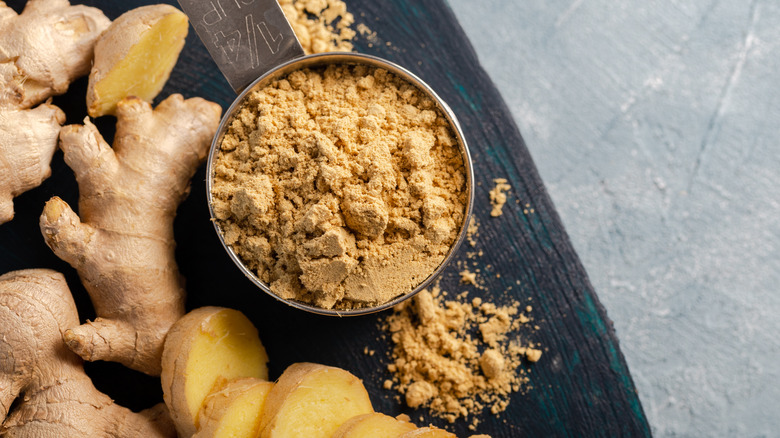Avoid Eating Too Much Ginger If You Have These Medical Conditions
You find ginger pickled with your favorite sushi dish. Ginger adds that punchy spice to those cute little gingerbread cookies. When your stomach is sick, a little bit of ginger ale seems to give relief. It can be dried and used as a spice. You can chop it up into small pieces for tea to soothe a sore throat. Ginger is a pretty versatile root when you think about it.
Although ginger hasn't been approved by the Food and Drug Administration for medicinal use, the health benefits of ginger include soothing nausea for people who are pregnant or taking HIV/AIDS medication. Ginger might also reduce gas. The antioxidants and anti-inflammatory compounds found in ginger might fight free radicals and ward off inflammation from arthritis or respiratory conditions.
Rather than using ginger supplements, you can find ginger root in your produce aisle to handle some of your ailments. For the most part, ginger is safe, but people with diabetes, bleeding disorders, and heart conditions should consult their doctors before taking ginger.
Why some people shouldn't use ginger
People with bleeding disorders have few or abnormal platelets in their blood to form clots. This can present problems when you have a cut or get dental work because you'll continue to bleed. Because the bioactive compounds in ginger relax blood vessels and reduce the formation of blood clots (per a 2012 study in Molecules), it's not recommended for people with bleeding disorders. Some people with heart disease might take blood thinners such as warfarin or aspirin, so they should also avoid eating too much ginger to prevent complications from bleeding.
According to a 2010 study published in the journal Medicine, ginger has been used to reduce blood sugar in people with diabetes. If you're already taking medications to control your blood sugar, an excess of ginger in your diet might cause your blood sugar to get too low.
A 2019 study in Phytotherapy Research found that taking ginger supplements can reduce your blood pressure. Therefore, you might want to avoid taking ginger supplements if you're already taking supplements or medications to control your blood pressure.
Using ginger safely
Adding a little ginger to flavor your favorite dishes and baked goods shouldn't be a problem, but using ginger for medicinal benefits requires a little more. As a general rule, Mount Sinai advises against taking more than 4 grams of ginger each day from supplements or food. You might not need that much ginger for nausea or indigestion. About a gram of ginger spread throughout the day should do the trick. Taking ginger for arthritis might only require about 250 milligrams of ginger four times a day. If you're pregnant, consult your doctor before taking ginger for nausea or vomiting to find an appropriate and safe dose.
You might want to stay away from ginger if you have heartburn because eating too much ginger at once can cause heartburn or gas. It also might burn inside your mouth, especially if you eat more than 5 grams of ginger a day. If you use it on your skin, you could develop a rash or irritation (per WebMD).



